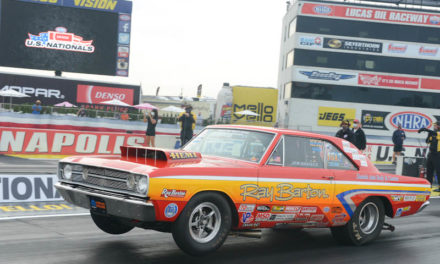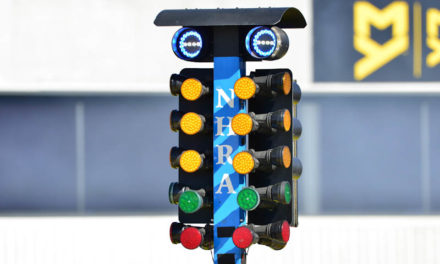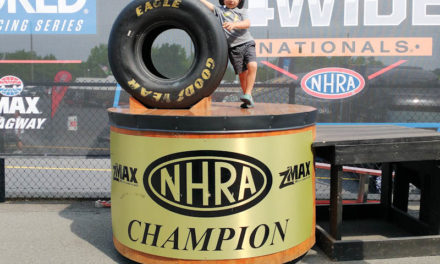Ranking the Field

Like many of us, I enjoy watching sports. In addition to the games though, I also like to read/watch some of the commentary. Call it the Moneyball effect, but a lot of these commentaries eventually make their way around to statistical analysis. If you haven’t read the book or seen the movie, I highly recommend doing both. If you are unfamiliar though, here is a quick recap. The book, and film that follows, is centered around the 2002 Oakland Athletics and how it assembled a team based on statistical analysis of players and how to get the most bang (wins) for their buck on an extremely limited (by MLB standards of the time) budget. Spoiler alert, the team does well and this philosophy takes over the MLB with many other teams emulating it to varied success. Other sports’ leaders starting using similar ideology and it eventually trickled down to what you see the “talking heads” jabbering on about on the sports broadcasts.
We never really get any statistics from drag racing that mean anything to the next race. Lewis Bloom has always been my favorite to go to for stats and I’m sure he could tell you how many national events a certain racer has won when the event was completed on a Monday, but that doesn’t give me any insight to how any two racers stack up against one another. The ideas promoted in many other sports is that we can look at statistical data and compare players based on their value to the team. The only thing we have is did they bring home a trophy or not. While wins will always be the ultimate decider for any sport, what can we look at to give us a better analysis of a driver?
The obviously categories to look at are win percentage and reaction time, but it starts getting tricky after that. If you look at how much finish line a person takes, it discounts the guy that purposely dumped to get behind. What about the guy who trusts his car and dials honest? As long as he has a good light and the win light comes on, who cares what he took at the finish line. The fact that we have different strategies that can change every round (or even at half track) make it difficult to categorize what actually matters.
Another issue is how much luck plays a role. Watching some of the bracket races online there always seems to be an instance where a 0.008 package loses and in the next pair, the best light is 0.050. This is just part of our game, but how do you eliminate that from a comparison? It probably forces us to track the opponents as well as the driver we are analyzing.
The biggest issue I see with all of this though is getting the necessary data and then having it all pulled together. I don’t see any efficient way of gathering the data from all the necessary sources, but maybe I’m just ignorant in that regard. After that, I’m sure someone with some coding skills could build a database to evaluate it and output the things that we determine are relevant. However, that initial phase of making those determinations and setting it up is not a simple task.
At the end of the day though, why? Personally, I would like us to have a sportsman drag racing ranking system similar to golf. You could use this to determine entrance into certain all-star events or end of year prizes. It would even be entertaining to hear discussions based on the rankings and statistics during the late round dead air time at events. Maybe that’s just me though and this is all just a bad idea? – Franklin DiBartolomeo








